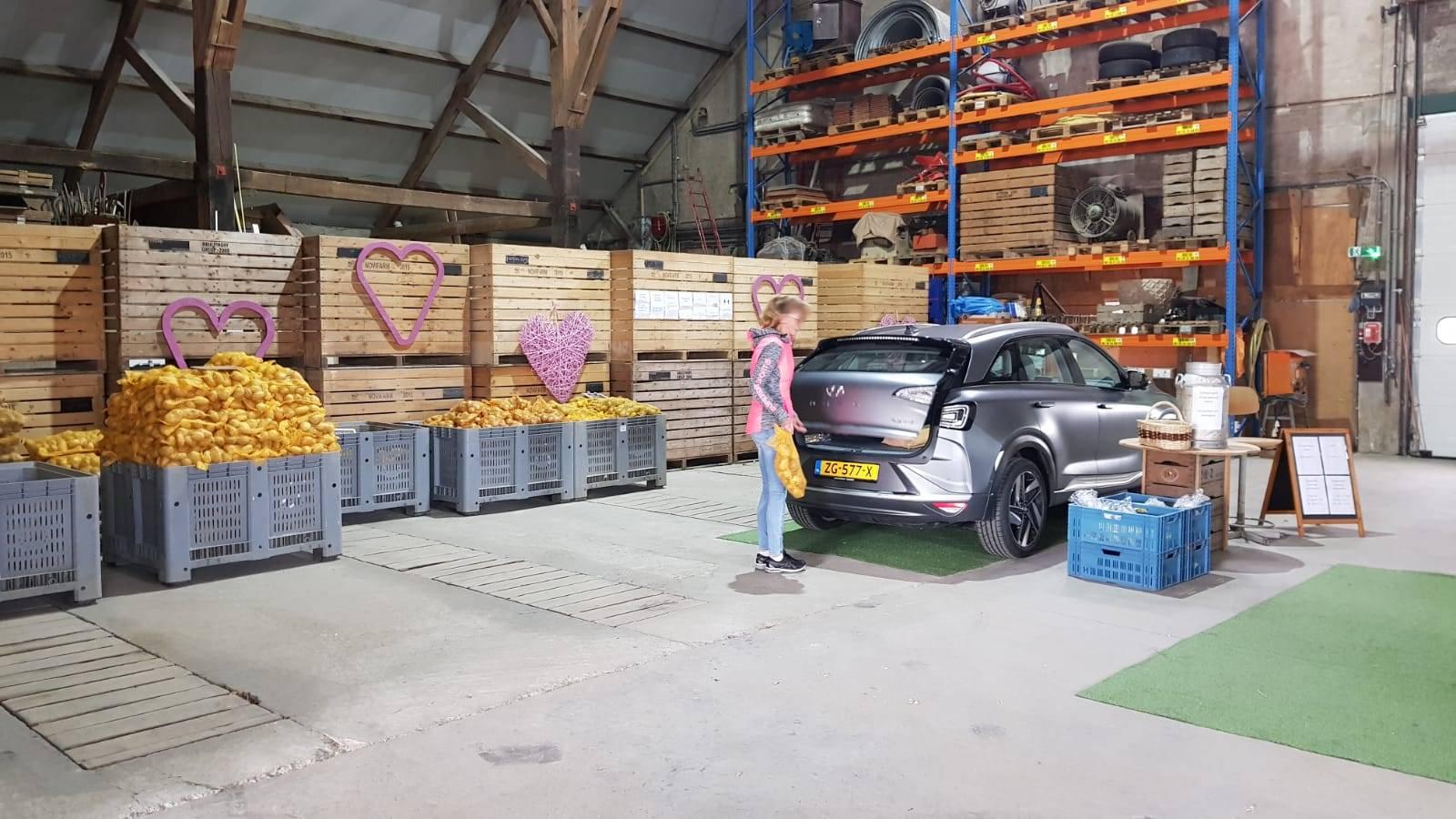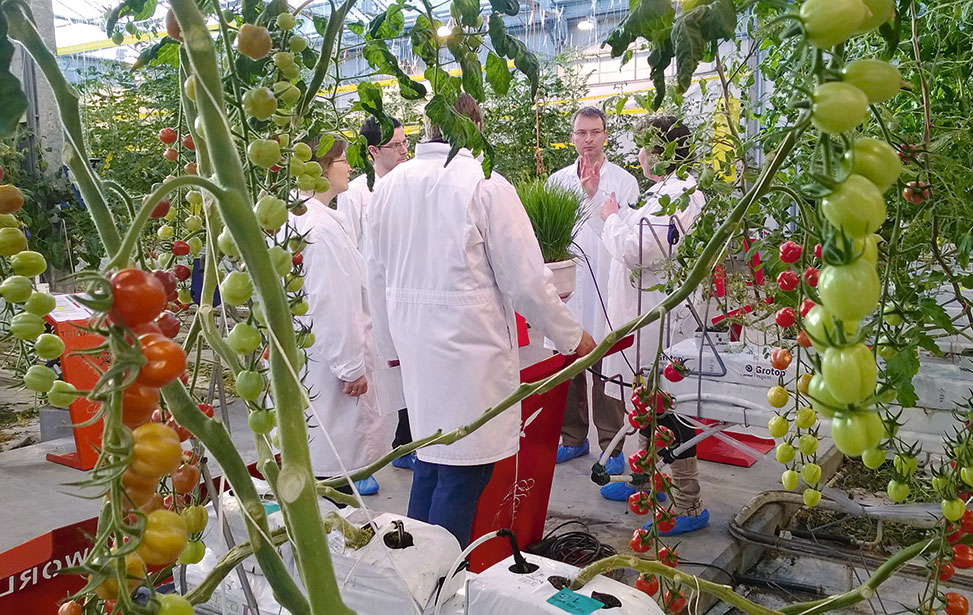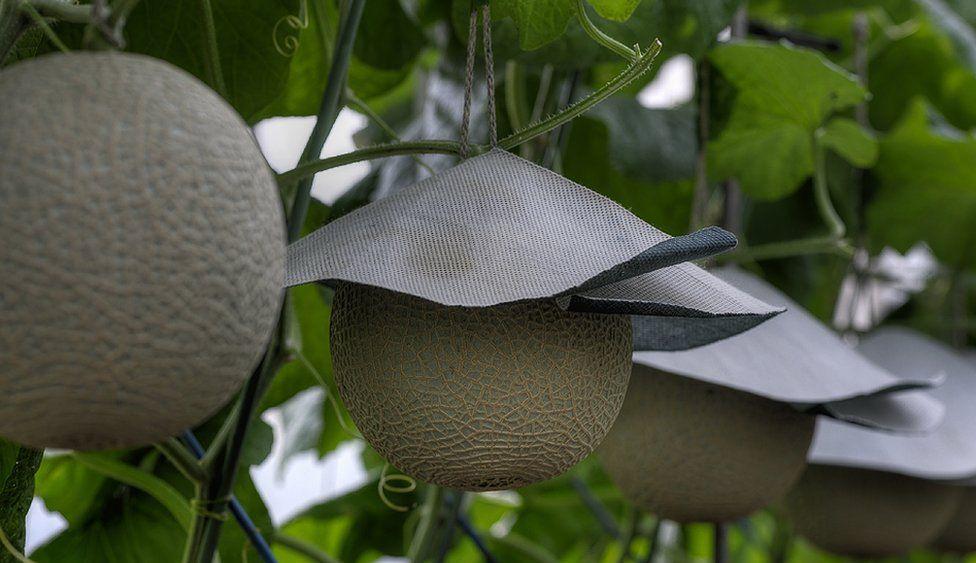Farmers and horticulturists who deliver to consumers through specialty stores such as farm shops are benefiting from the changed consumer spending due to the corona crisis. At the beginning of this year, this increased by about 30 percent at specialty food stores. This is evident from ABN Amro debit card transactions.

For this year too, spending at specialty food stores will remain high due to the corona crisis, ABN Amro writes in the sector forecast. ‘Shopping at the farmer or horticulturalist has turned out to be a welcome outing now that a large number of people are confined to their homes. Moreover, people have more money to spend. After all, nothing is spent anymore in the pub or restaurant. In addition, the farm shop meets a need that has been gaining momentum for some time: consumers want fresh, authentic and local food. ‘
It is precisely the income in multifunctional agriculture that is influenced by the corona measures and changing consumer behavior, the bank notes. A number of these multifunctional agricultural activities are benefiting from the corona crisis, while others are being disadvantaged. ‘Corona has two faces for multifunctional agriculture.’
Side activities
More and more farmers have secondary activities. Last year, the Netherlands had 22,000 multifunctional companies, about 40 percent of the total number of agricultural companies. Four years ago there were 14,000 agricultural businesses with a secondary activity such as a farm campsite or farm shop.
Last year, more than 7,000 agricultural companies sold their products via the short chain. These are farmers and horticulturists who deliver directly to the yard or via an intermediary link to the consumer. This could be, for example, a restaurant, a market trader or garden center. The number of companies trying to reach consumers via the short chain has also increased significantly, ABN Amro concludes, based on CBS figures.
In 2017, approximately 11 percent of agricultural businesses generated part of their turnover from short-chain sales, by 2020 this percentage had grown to approximately 14 percent. Short-chain sales have become an important part of their revenue model for these companies. On average, these companies generate one third of the total turnover from this secondary activity.
Local intermediaries
Yet increasing consumer spending in farm shops does not tell the whole story of short-chain sales, says ABN Amro. Where farmers and horticulturists, who supply to consumers via specialist shops, benefited from the closure of the catering industry and the changing consumer spending, some of the entrepreneurs who sell to consumers through intermediaries are hit hard.
‘The part of the short-chain turnover that depends on direct delivery to consumers is small. Most of the turnover is generated through the delivery to intermediaries, which in turn sell to the consumer. On average, a company earns almost 300,000 euros by supplying one of the aforementioned intermediaries. The company that sells directly to the consumer gets an average return of 50,000 from this. It is therefore positive that consumer spending at farm shops is increasing, but more important is what will happen with sales through the local intermediary this year. ‘
‘The sale of flowers and plants is affected by the closure of garden centers this year. Sales through ‘click & collect’ are unlikely to make up for much of the blow that sales through this channel take. Farmers or horticulturists who supply directly to the catering industry suffer from the catering closure. In total, food gardeners convert around 330 million euros through short-chain sales with one intermediate link. About 70 million euros is earned by delivering directly to the consumer. ‘
Agrotourism
In addition to entrepreneurs working in the short chain, farmers engaged in agrotourism are also experiencing the consequences of the corona crisis. Last year, nearly two thousand agricultural entrepreneurs were partly dependent on operating a bed and breakfast, camping site or renting space for, for example, business events and weddings.
The vaccination policy plays a major role in how this side activity unfolds this year, ABN Amro expects. ‘If the corona outbreak is sufficiently contained before the summer, these activities in the yard will undoubtedly increase again. Especially when the farmers also have opportunities to receive German and Belgian tourists. ‘
‘If the corona virus is not sufficiently contained, the Dutch will, just like last year, mainly recreate in their own country. In 2020, the turnover of Dutch residential recreation increased during the summer holidays compared to the summer holidays in 2019. But this did not make up for the loss of turnover in the other holidays, such as the May, Whitsun and Easter holidays. ‘
Optimistic
ABN Amro is optimistic for this year. A lot is already being booked. The prospect of nice spring weather, negative travel advice for abroad and a longer-than-expected lockdown are currently leading to more bookings by Dutch families and homeworkers.
‘The other activities will be less successful if, in all likelihood, a number of restrictive measures remain in force even in the summer months. The bookings of group accommodations and the rental of accommodation for business or personal meetings will then, in the best case, pick up again later in the second half of the year. However, this will no longer make up for the lost turnover of earlier this year, ‘expects ABN Amro.











